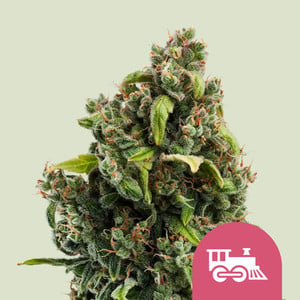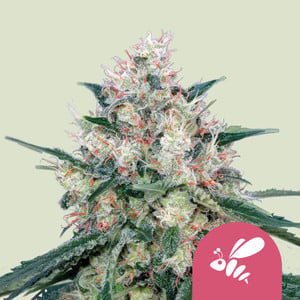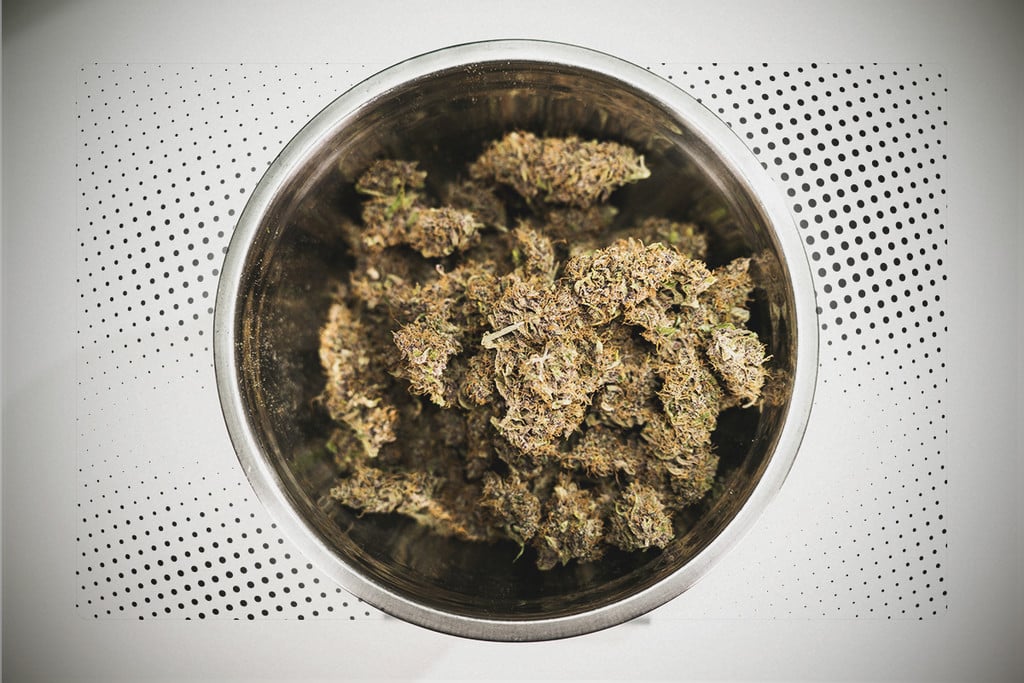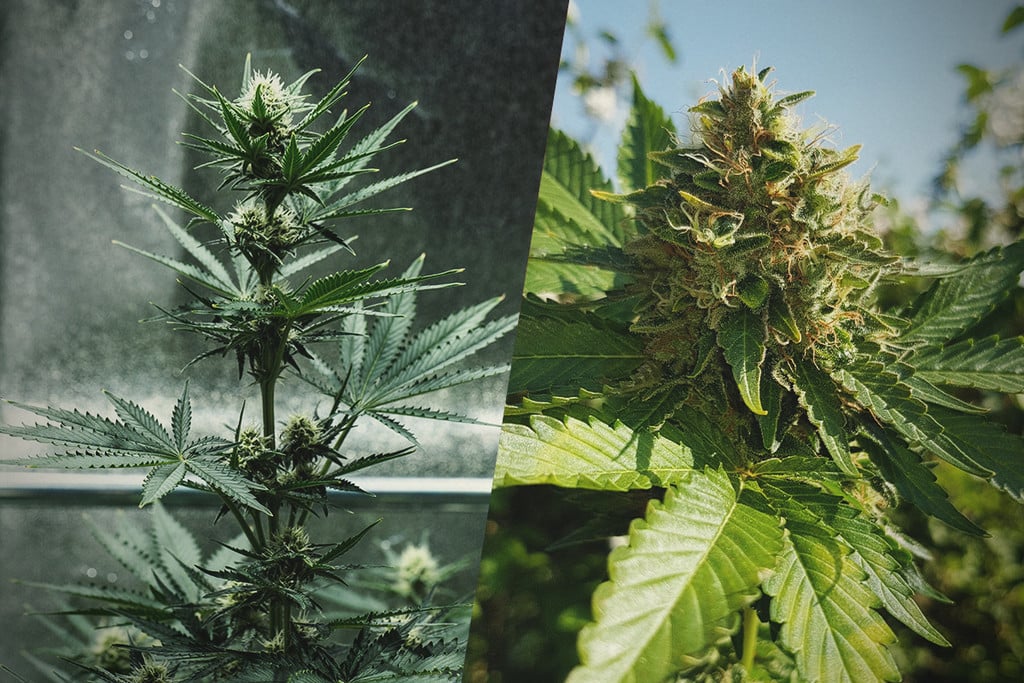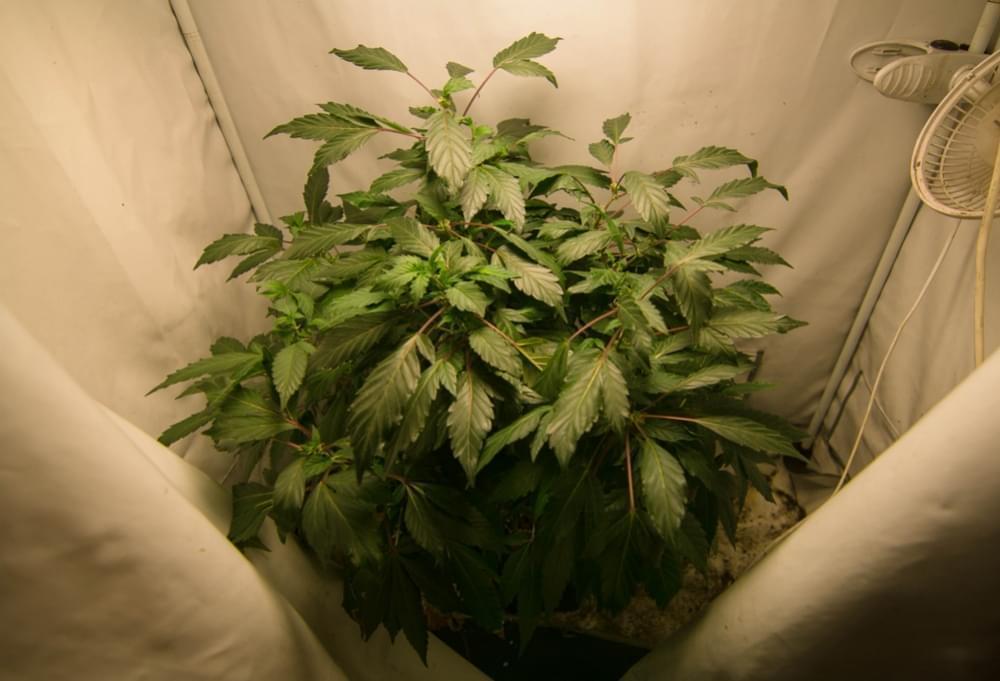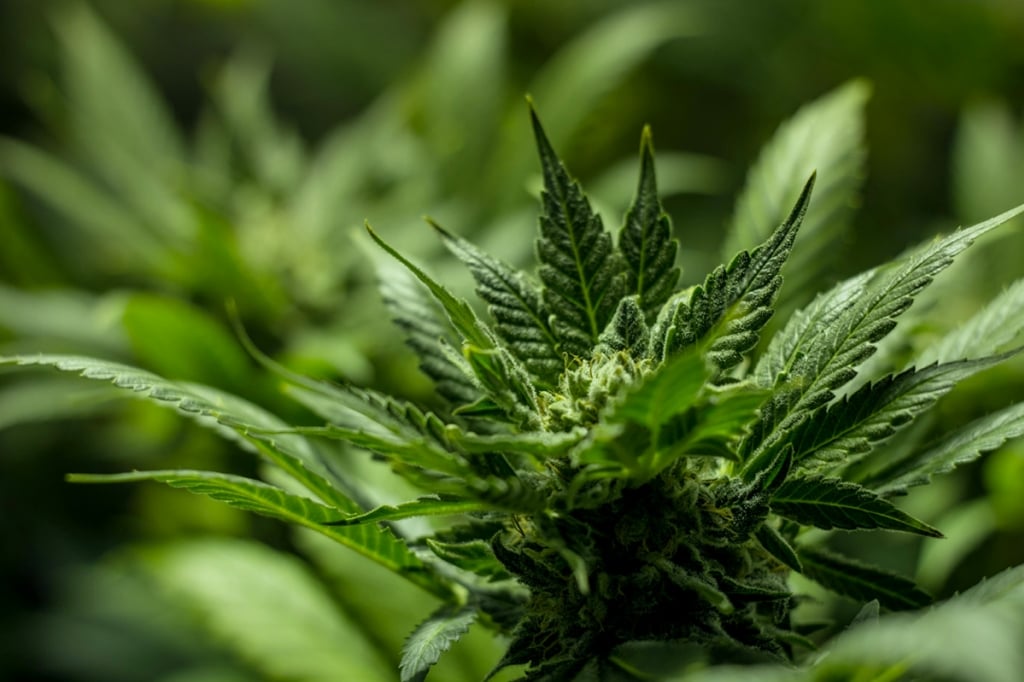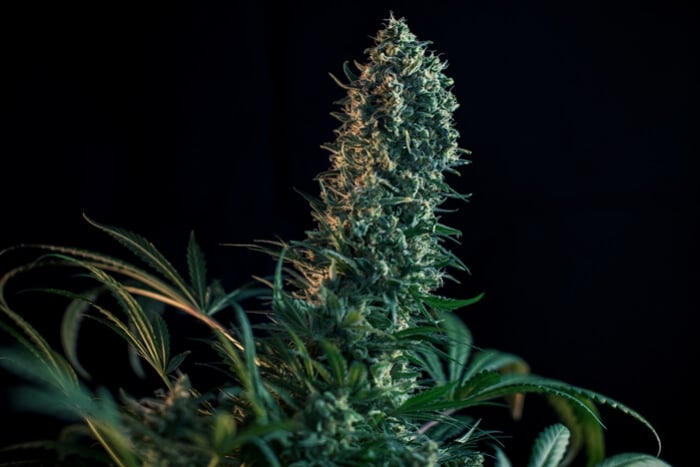.
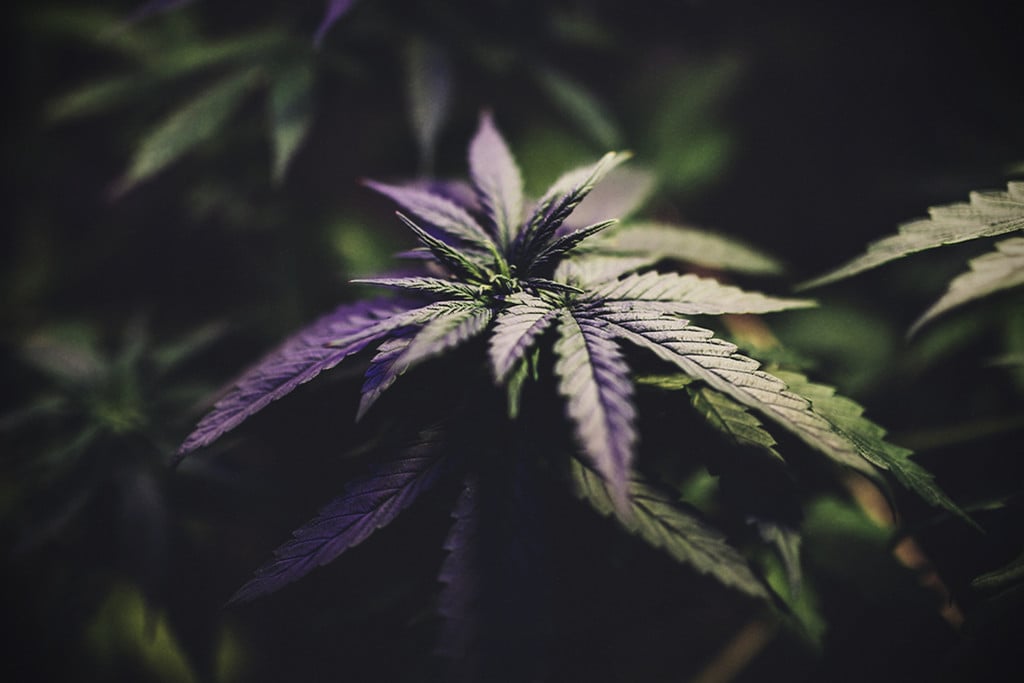
Force-Flowering Cannabis Outdoors: Yes, You Can Do It!
Growing cannabis outdoors can be tricky because you must rely on the natural light cycle to support your plants' growth. But the location of your garden or the local climate might not always allow your plants to go through their entire flowering cycle as intended. That's where force-flowering can help you achieve a perfect harvest! Here's how.
Learn how to force-flower your outdoor weed plants.
Outdoors, under the sun is arguably one of the best ways to grow your own weed. Unfortunately, growing outdoors can be tricky if you live far north or south or along the equator. Luckily, you can overcome some of the challenges of growing in these areas by force-flowering your outdoor plants. In this article, we’ll walk you through the process, so you can gain more control over your outdoor grow.
Contents:
When Does Cannabis Flower Outdoors?
Photoperiod cannabis plants start to flower at the end of summer (following the summer solstice), once the days get shorter and the nights grow longer. Latitude obviously has a big impact on when weed flowers, as it correlates to the number of daylight hours in a particular region.
In general, however, cannabis plants will start flowering after the June solstice (June 20th or 21st, depending on the year) in the Northern Hemisphere and after the December solstice (December 20th or 21st) in the Southern Hemisphere. Keep in mind that the switch to bloom is a lot more gradual outdoors, as daylight hours decrease by a matter of minutes every day.
How Long Does the Flowering Stage Last?
How long a plant takes to flower outdoors varies depending on its genetics and its environment. In general, however, cannabis plants can be harvest-ready between September and November in the Northern Hemisphere and March–May in the Southern Hemisphere.
Why Would You Want to Force-Flower Cannabis?
When we think of outdoor growing, we tend to believe we have almost no control over the light cycle of our cannabis. But that doesn’t have to be the case. While there’s a certain beauty to letting nature run its course, sometimes a bit of human intervention can make the difference between an average harvest and a great one.
Benefits of Force-Flowering Outdoor Cannabis Plants
Here’s why you might want to consider forcing your outdoor plants to flower:
1. Avoid Frost
Areas far north or south of the equator tend to have long, harsh winters that set in a lot earlier than in other areas of the globe. If you’re growing outdoors in northern Europe or southern Argentina, for example, you may want to force your plants to flower a little early to avoid early winter frosts or rain destroying your harvest.
2. Limit Size
If you live along the equator, on the other hand, you may want to force-flower your outdoor plants to keep them from growing too large. Due to the long, consistent hours of sunlight these areas get all throughout the year, photoperiod strains growing close to the equator can take a long time to start flowering and, given enough space, can grow massive.
3. Perpetual Harvests
You don’t need to be living in Tierra del Fuego or Oslo to be intrigued by the idea of force-flowering your outdoor plants. In fact, a lot of outdoor growers opt to force their plants into bloom to produce multiple harvests throughout the year. Some experienced growers even produce perpetual harvests approximately every two weeks throughout the growing season.
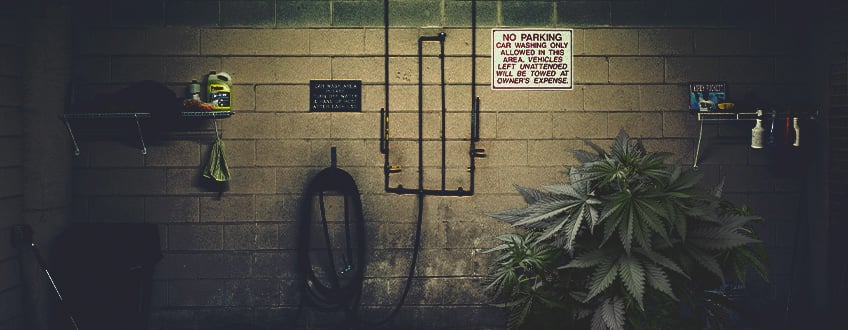
When Can You Force-Flower Cannabis Outdoors?
If you live in a cool, temperate climate zone (like the UK, northern Europe, or far south in South America), you may face cold, damp falls and early winters that overlap with the end of your plants’ bloom phase. To stop these conditions from jeopardising the quality and size of your harvest, we recommend forcing your outdoor plants to flower prematurely during mid-June or early July in the Northern Hemisphere and mid-January or early February in the Southern Hemisphere.
In the UK, for example, outdoor cannabis plants naturally won’t start flowering until September (approximately). In order to avoid the harsh rains and winds of fall, we recommend outdoor growers in the UK force their plants into bloom as early as mid-June or early July. Given the cold spring in the region, you’ll likely also want to start your plants off indoors.
If you live close to the equator or in the tropics, on the other hand, you may be able to grow outdoors all year round. Given these conditions, you can essentially force your plants to flower whenever you like (local weather permitting, of course).
How to Force Cannabis Flowering Outdoors
The principle behind force-flowering outdoor plants is simple; just reduce the amount of light your plants get. How you choose to do this, however, depends on the number of plants you’re growing and the weather in your area.
If you’re growing a handful of plants on a balcony or terrace and don’t have extreme temperatures and harsh rains to worry about, a simple wooden or PVC frame fitted with a light-proof tarp might be all you need; simply pop your plants under the tarp at night and give them a full 12 hours of uninterrupted darkness to force them into bloom.
Alternatively, you could also move your plants into a garage, cellar, or shed at night; just remember that the area needs to be 100% light-proof for the plants to start flowering properly.
If you’re growing a lot of plants, you probably don’t want to lug them around every day. In this case, you may want to consider an automated tarp or roof above them. You can then use a timer to ensure your plants go undercover at the same time every day, without having to move them inside individually.
If the weather in your area isn’t so favorable during early fall, you may want to invest in a small indoor grow tent complete with a light and fan. Once you’re happy with how your plants have vegged outdoors, bring them into the tent to finish them off without having to worry about the cold, rain, or wind.
Force-Flowering: Factors to Consider When Covering Your Plants
While force-flowering is pretty simple, there are a couple of things you’ll want to keep in mind to make sure the process goes down smoothly.
🌬️ Air Circulation
When you move your plants undercover, one of the first things you’ll want to think about is air circulation. Stale, stagnant air can drive up the temperature and relative humidity around your plants, creating a breeding ground for pests, fungi, and bacterial pathogens. Whether you’re keeping them under a DIY frame with a tarp or in an indoor grow tent, make sure you have clean, fresh air circulating around the space to keep your plants healthy.
📅 Schedule
Next, you’ll want to stick to a tight schedule. Photoperiod strains are very sensitive to light cycle changes, and a small slip-up when you’re trying to force them to flower can revert them back to veg or trigger hermaphroditism. For the best results, create a consistent flowering schedule with plenty of reminders to ensure your plants go under and come out of cover at the same times every day.
🕶️ Light-Proof!
Finally, you’ll want to make sure that the structure housing your plants during their bloom phase is 100% light-proof. Light leaks during the flowering cycle can cause your plants a lot of stress and interrupt their flowering cycle. Wherever you’re keeping your plants, make sure there is absolutely no light exposure during the dark hours.
Covered and forcing bloom? The Pro Guide gives pro tips on airflow, plant structure, and support to ensure healthy outdoor flowering.
Free Advanced
Growing Guide!
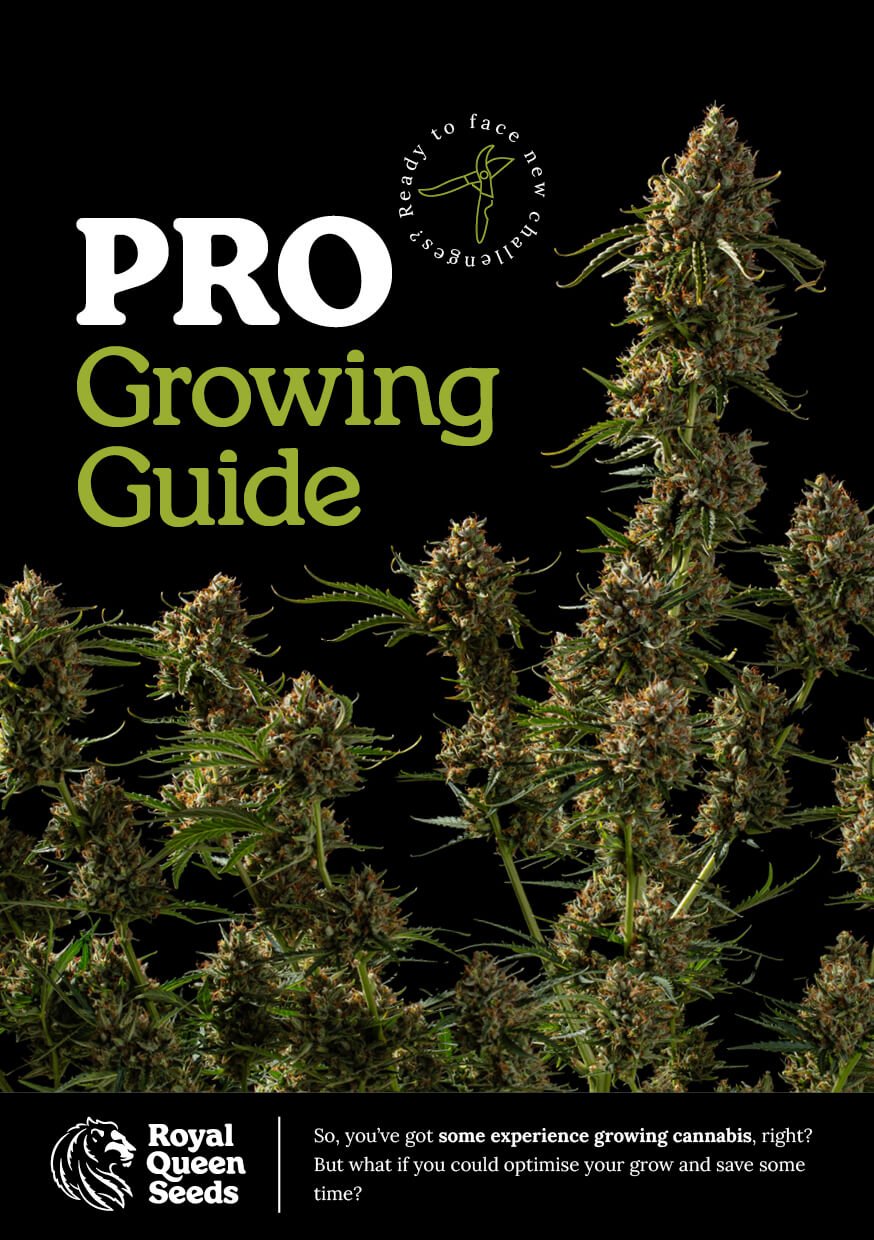
Don’t Want to Force-Flower? Try Fast-Flowering or Auto Strains
Rather than having to force-flower your outdoor plants every season, we recommend looking into strains with flowering times suited to your local climate.
Our fast-flowering strains, for example, are specially bred to flower in as little as 40 days. Our experienced breeders have developed these strains especially for growers looking to get to harvest sooner or pump out multiple harvests per season.
Alternatively, autoflower strains are another great option, especially if you live in the tropics or close to the equator. Unlike feminized or regular strains, our autoflowering cannabis varieties are specially bred with ruderalis genetics and flower automatically based on their age, rather than changes in their light cycle. If you’re looking to pump out multiple harvests per year, our autos are the way to go.
Below are some of our favorite fast-flowering and autoflowering strains:
Candy Kush Express
A cross between Sweet Special and Royal Kush, Candy Kush Express is a well-balanced hybrid with great potency and delicious sweet citrus aromas. A direct descendant of an Afghan Kush, Candy Kush Express boasts a big, heavy stone that’ll leave you glued to the couch for hours. Finally, with a flowering time of only 7–9 weeks, few photo-feminized strains are this quick to reach harvest.
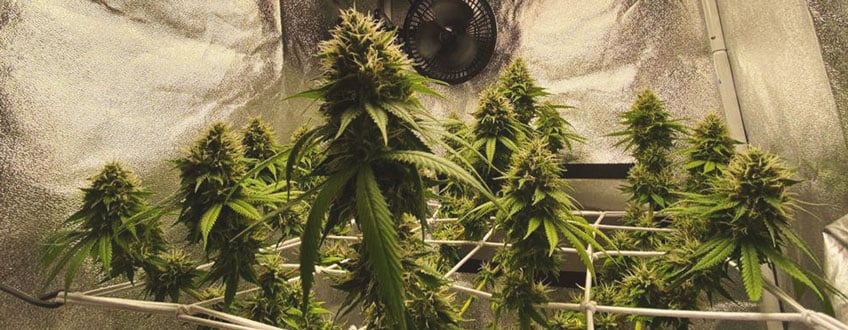
Candy Kush Express (Fast Flowering)
|
|
Sweet Special x O.G. Kush |
|
|
17 to 18 oz/m² |
|
|
2 to 3 feet |
|
|
50 - 60 days |
|
|
THC: Up to 18% |
|
|
Sativa 40% Indica 60% |
|
|
16 to 18 oz/plant |
|
|
3 to 6 feet |
|
|
Early September |
|
|
Physically Relaxing, Stoned |
Buy Candy Kush Express (Fast Flowering)
Honey Cream
Honey Cream is the result of an exciting three-way cross between BlueBlack, Maple Leaf Indica, and White Rhino. This beautiful feminized plant grows vigorously straight out the gate, and quickly develops a sweet, almost caramel-like aroma. Its buds grow very thick and produce a relaxing stone that’s great for the end of the day. Thanks to its indica-heavy genetics, Honey Cream can be harvest-ready after just 6–7 weeks in bloom.
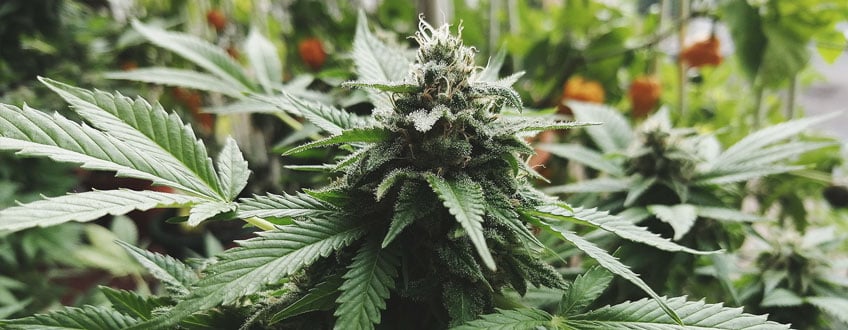
Honey Cream (Fast Flowering)
|
|
BlueBlack x Maple Leaf Indica x White Rhino |
|
|
18 to 19 oz/m² |
|
|
3 to 5 feet |
|
|
50 - 55 days |
|
|
THC: Up to 16% |
|
|
Sativa 35% Indica 65% |
|
|
22 to 24 oz/plant |
|
|
6 to 8 feet |
|
|
Early October |
|
|
Psychedelic |
Buy Honey Cream (Fast Flowering)
Royal Dwarf
Royal Dwarf is one of our most prized autos. Short and stout, this plant only grows 40–60cm tall, making it ideal for stealthy growers. But don’t let its size fool you; Royal Dwarf produces thick, dense buds of moderate potency with big, sweet citrus overtones. Best of all, it can go from seed to harvest in just 8–9 weeks and produces up to 80g/plant.
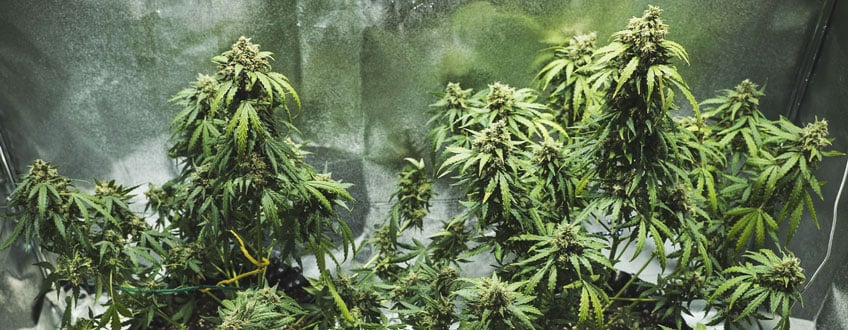
Royal Dwarf
|
|
Skunk x Ruderalis |
|
|
5 to 7 oz/m² |
|
|
1 to 2 feet |
|
|
45 - 50 days |
|
|
THC: Up to 13% |
|
|
Sativa 10% Indica 60% Ruderalis 30% |
|
|
1 to 3 oz/plant |
|
|
2 to 3 feet |
|
|
Creative, Motivating |
|
|
65 - 70 days after germination |
Sweet ZZ Auto
With up to 18% THC, Sweet ZZ Auto delivers all the potency of a photoperiod strain in a small, discreet, and super fast package. It packs a big citrus aroma and a long-lasting stone. Harvest-ready in about 10–11 weeks and capable of producing up to 160g/plant, Sweet ZZ Auto puts an end to the bad rap surrounding autoflowers for good.
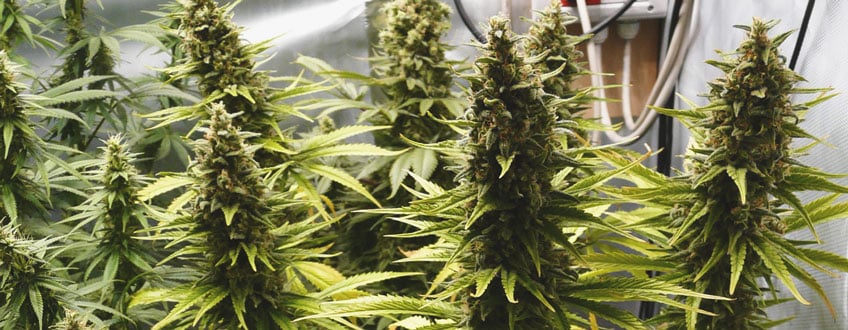
Sweet ZZ Auto
|
|
Sweet ZZ x Diesel Auto |
|
|
12 to 14 oz/m² |
|
|
2 to 4 feet |
|
|
45 - 50 days |
|
|
THC: Up to 18% |
|
|
Sativa 35% Indica 60% Ruderalis 5% |
|
|
3 to 6 oz/plant |
|
|
3 to 4 feet |
|
|
Stoned |
|
|
65 - 75 days after germination |


























